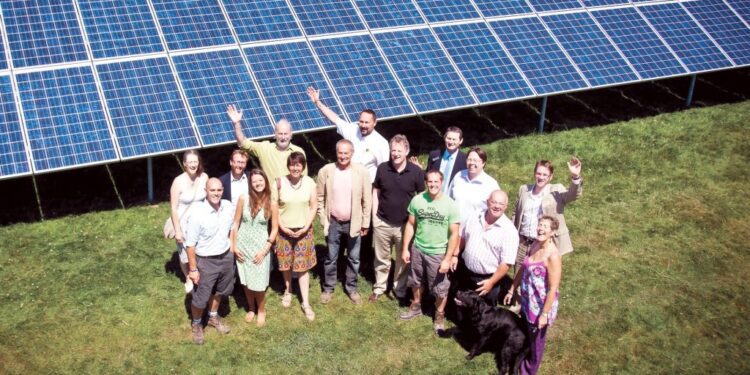Walid Halty, a dedicated entrepreneur in the climate technology sector, has traveled a remarkable journey since his modest beginnings. His parents, who emigrated from Morocco to the U.S., were able to obtain government housing. Being the eldest of five siblings, Halty recalls their small home as being filled with love despite its size. Although his parents aspired for him to become a physician, he ultimately chose a different route—achieving the milestone of running a $41 million enterprise by the age of 23.
Raised in Greater Boston, Halty displayed exceptional academic performance and regularly ranked among the highest in his class. He fondly remembers studying calculus in the sixth grade alongside his regular curriculum, and throughout high school, he enrolled in more than a dozen Advanced Placement classes. On weekends, he participated in Saturday school to enhance his Arabic skills.
Halty’s Major Breakthrough
Halty made the bold decision to leave college at the start of his sophomore year to support his family financially. “I was selling iPhones, flowers for Valentine’s Day, doing whatever I could to make money,” he reminisces. His breakthrough came when he reconnected with a friend working in sales at SolarCity—a firm acquired by Tesla in 2016 for $2.6 billion. At just 18 years old, Halty secured an internship, hoping for full-time employment.
Less than two months later, he achieved that goal. Halty quickly rose to become one of the top salespeople at SolarCity, a significant accomplishment in a company of approximately 10,000 sales representatives. He recalls earning $20,000 in his first month, far exceeding his prior annual earnings. “Initially, it was about the money,” he reflects. “Not out of selfishness, but rather, ‘I need to find a way to figure this out because it extends beyond me.’”
He attributes a significant part of his early success to fortuity and being opportunely positioned. “I was fortunate that it involved solar,” he notes, highlighting the industry’s positive impact on the globe. “I could have easily been selling jets… But it was about finding the right avenue to apply myself effectively and generate enough income to start aiding my family.”
Colossus and Monalee
In 2017, he established Colossus (originally Dvinci and later purchased by PX in 2023), a marketplace designed to assist businesses in selling solar energy. The company aimed to make clean energy more affordable for homeowners while donating 10% of its annual profits to charitable causes and educational scholarships.
Halty’s latest venture is Monalee, a climate technology company focused on accelerating the adoption of home solar, storage, and electric vehicle charging systems. By utilizing sophisticated machine learning and streamlining the process—removing the need for salespeople and system designers—Monalee enables homeowners across the United States to transition to solar energy at approximately half the standard cost. Given that solar prices in the U.S. tend to be significantly higher than in other countries, this initiative represents an important stride toward closing the electricity gap.
Monalee adopts a digital-first strategy in a landscape traditionally dominated by offline processes. Halty points out that tools to facilitate and speed up this process have been lacking, resulting in soft costs comprising about 75% of the total price for homeowners.
Through Monalee, Halty and his team aim to reduce those soft costs, making solar adoption an effortless choice for homeowners. “The principal barrier to entry remains cost and savings, and if we can minimize that, it transforms into a straightforward decision for them,” he states.
The company’s patent-pending artificial intelligence technology employs millions of data points to provide customers with the most advantageous solar design for their residences. It evaluates various factors, including the orientation of the roof—such as south-facing roofs in the northern hemisphere, which receive optimal sunlight—as well as the roof type and its slope.
Enhancing the Solar Sector
Despite Monalee’s rapid expansion, challenges remain. One significant hurdle is combating the negative stereotypes that many homeowners hold regarding solar sales. Solar salespeople often have a reputation for being overly aggressive and employing bait-and-switch pricing tactics.
Having previously worked as a solar salesperson, Halty understands these concerns. “When someone comes off as pushy, you tend to avoid conversations with them… That perception has persisted in the industry,” he admits. “At Monalee, we’re not forcing anything—we’re inviting consumers to our platform and positioning ourselves in a modern, digital e-commerce way, in contrast to traditional methods.”
In numerous respects, Monalee—and the solar sector overall—are only beginning their journey. “Solar is a relatively young industry,” Halty observes. “Currently, we’re at a 3% market penetration in the United States, but the sector is experiencing a 24% compounded annual growth rate. We’ve just begun to cross the threshold, as mass adoption typically occurs when penetration reaches 3–5%.”
Contributing to the Community
Reflecting on his entrepreneurial journey, Halty is grateful that he found himself in an industry crucial for the planet’s future. “As I think about the world I want to pass on to my siblings and daughter, we need to ensure it is healthy, protected, and sustainable in the long run,” he emphasizes.
He also takes tremendous pride in being able to support his family. A significant personal milestone was purchasing a house for his parents, moving them from 700 square feet of government housing to a spacious 4,000-square-foot home. “My mom relies on my income, as do most of the rest of my family,” Halty reveals.
His upcoming ambition is to assist his father in achieving retirement. “I have the chance to alter my family’s future for the better,” he expresses.


